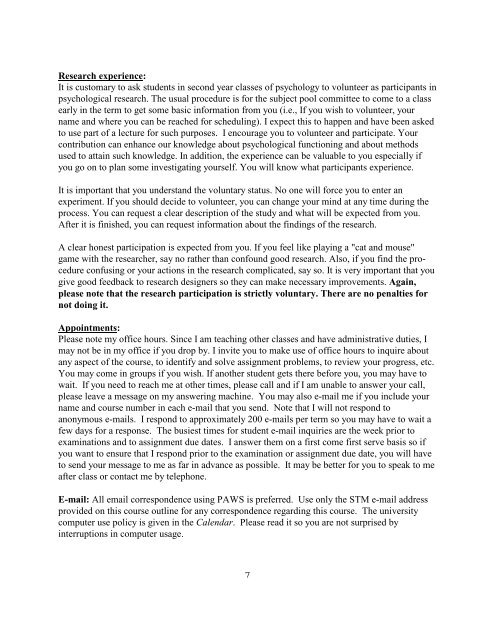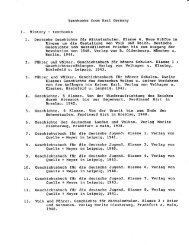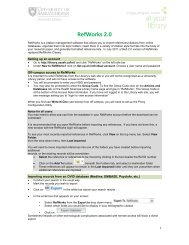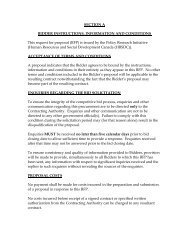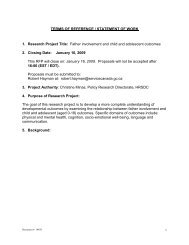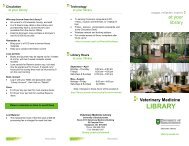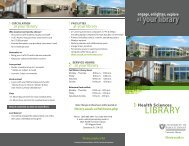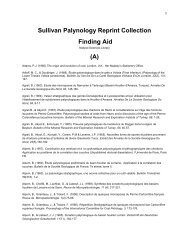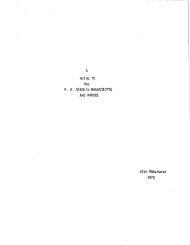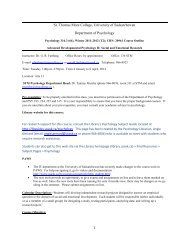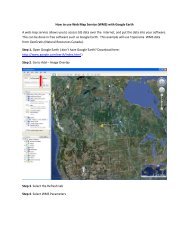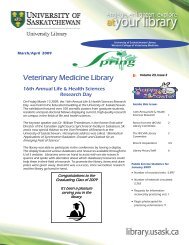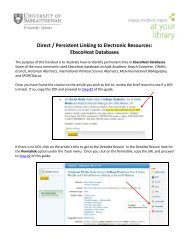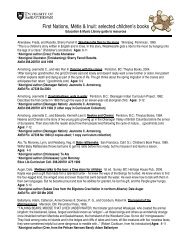T1 - University Library - University of Saskatchewan
T1 - University Library - University of Saskatchewan
T1 - University Library - University of Saskatchewan
Create successful ePaper yourself
Turn your PDF publications into a flip-book with our unique Google optimized e-Paper software.
Research experience:<br />
It is customary to ask students in second year classes <strong>of</strong> psychology to volunteer as participants in<br />
psychological research. The usual procedure is for the subject pool committee to come to a class<br />
early in the term to get some basic information from you (i.e., If you wish to volunteer, your<br />
name and where you can be reached for scheduling). I expect this to happen and have been asked<br />
to use part <strong>of</strong> a lecture for such purposes. I encourage you to volunteer and participate. Your<br />
contribution can enhance our knowledge about psychological functioning and about methods<br />
used to attain such knowledge. In addition, the experience can be valuable to you especially if<br />
you go on to plan some investigating yourself. You will know what participants experience.<br />
It is important that you understand the voluntary status. No one will force you to enter an<br />
experiment. If you should decide to volunteer, you can change your mind at any time during the<br />
process. You can request a clear description <strong>of</strong> the study and what will be expected from you.<br />
After it is finished, you can request information about the findings <strong>of</strong> the research.<br />
A clear honest participation is expected from you. If you feel like playing a "cat and mouse"<br />
game with the researcher, say no rather than confound good research. Also, if you find the procedure<br />
confusing or your actions in the research complicated, say so. It is very important that you<br />
give good feedback to research designers so they can make necessary improvements. Again,<br />
please note that the research participation is strictly voluntary. There are no penalties for<br />
not doing it.<br />
Appointments:<br />
Please note my <strong>of</strong>fice hours. Since I am teaching other classes and have administrative duties, I<br />
may not be in my <strong>of</strong>fice if you drop by. I invite you to make use <strong>of</strong> <strong>of</strong>fice hours to inquire about<br />
any aspect <strong>of</strong> the course, to identify and solve assignment problems, to review your progress, etc.<br />
You may come in groups if you wish. If another student gets there before you, you may have to<br />
wait. If you need to reach me at other times, please call and if I am unable to answer your call,<br />
please leave a message on my answering machine. You may also e-mail me if you include your<br />
name and course number in each e-mail that you send. Note that I will not respond to<br />
anonymous e-mails. I respond to approximately 200 e-mails per term so you may have to wait a<br />
few days for a response. The busiest times for student e-mail inquiries are the week prior to<br />
examinations and to assignment due dates. I answer them on a first come first serve basis so if<br />
you want to ensure that I respond prior to the examination or assignment due date, you will have<br />
to send your message to me as far in advance as possible. It may be better for you to speak to me<br />
after class or contact me by telephone.<br />
E-mail: All email correspondence using PAWS is preferred. Use only the STM e-mail address<br />
provided on this course outline for any correspondence regarding this course. The university<br />
computer use policy is given in the Calendar. Please read it so you are not surprised by<br />
interruptions in computer usage.<br />
7


